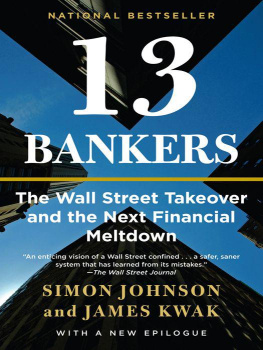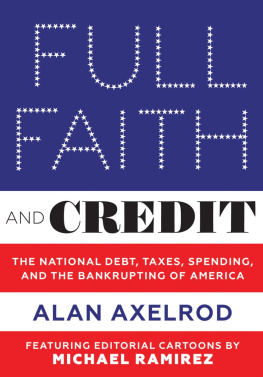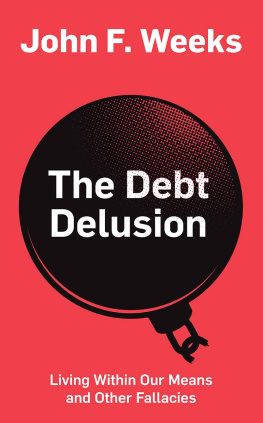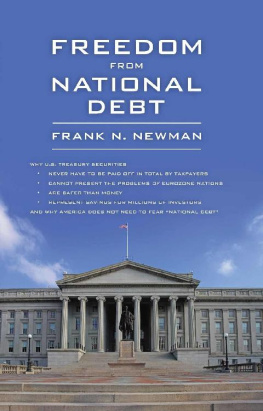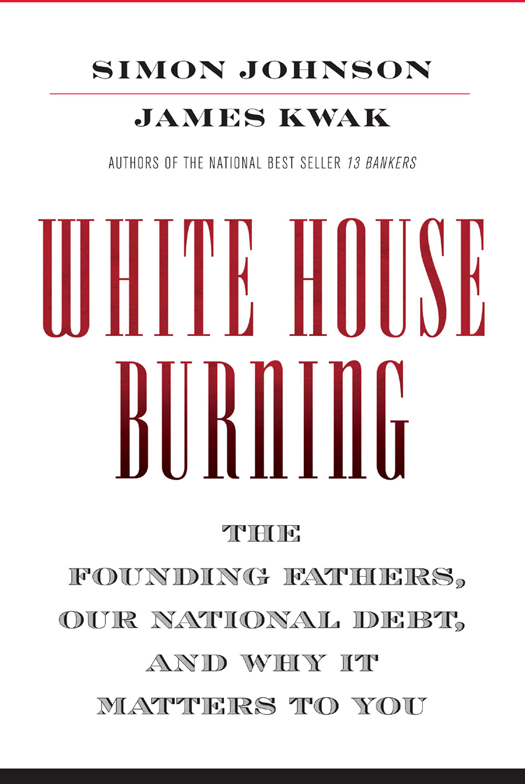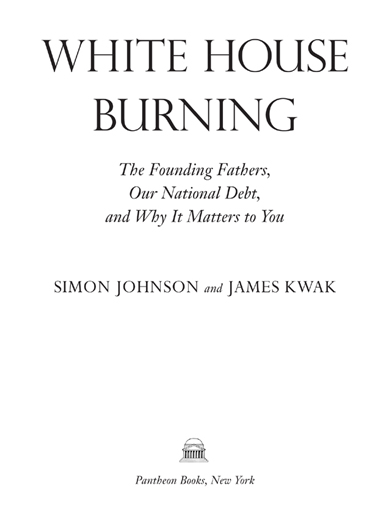Simon Johnson - White House Burning: The Founding Fathers, Our National Debt, and Why It Matters to You
Here you can read online Simon Johnson - White House Burning: The Founding Fathers, Our National Debt, and Why It Matters to You full text of the book (entire story) in english for free. Download pdf and epub, get meaning, cover and reviews about this ebook. year: 2012, publisher: Pantheon, genre: Politics. Description of the work, (preface) as well as reviews are available. Best literature library LitArk.com created for fans of good reading and offers a wide selection of genres:
Romance novel
Science fiction
Adventure
Detective
Science
History
Home and family
Prose
Art
Politics
Computer
Non-fiction
Religion
Business
Children
Humor
Choose a favorite category and find really read worthwhile books. Enjoy immersion in the world of imagination, feel the emotions of the characters or learn something new for yourself, make an fascinating discovery.

- Book:White House Burning: The Founding Fathers, Our National Debt, and Why It Matters to You
- Author:
- Publisher:Pantheon
- Genre:
- Year:2012
- Rating:5 / 5
- Favourites:Add to favourites
- Your mark:
White House Burning: The Founding Fathers, Our National Debt, and Why It Matters to You: summary, description and annotation
We offer to read an annotation, description, summary or preface (depends on what the author of the book "White House Burning: The Founding Fathers, Our National Debt, and Why It Matters to You" wrote himself). If you haven't found the necessary information about the book — write in the comments, we will try to find it.
America is mired in debtmore than $30,000 for every man, woman, and child. Bitter fighting over deficits, taxes, and spending bedevils Washington, D.C., even as partisan gridlock has brought the government to the brink of default. Yet the more politicians on both sides of the aisle rant and the citizenry fumes, the more things seem to remain the same.
In White House Burning, Simon Johnson and James Kwakauthors of the national best seller 13 Bankers and cofounders of The Baseline Scenario, a widely cited blog on economics and public policydemystify the national debt, explaining whence it came and, even more important, what it means to you and to future generations. They tell the story of the Founding Fathers divisive struggles over taxes and spending. They chart the rise of the almighty dollar, which makes it easy for the United States to borrow money. They account for the debasement of our political system in the 1980s and 1990s, which produced todays dysfunctional and impotent Congress. And they show how, if we persist on our current course, the national debt will harm ordinary Americans by reducing the number of jobs, lowering living standards, increasing inequality, and forcing a sudden and drastic reduction in the government services we now take for granted.
But Johnson and Kwak also provide a clear and compelling vision for how our debt crisis can be solved while strengthening our economy and preserving the essential functions of government. They debunk the myth that such crucial programs as Social Security and Medicare must be slashed to the bone. White House Burning looks squarely at the burgeoning national debt and proposes to defuse its threat to our well-being without forcing struggling middle-class families and the elderly into poverty.
Carefully researched and informed by the same compelling storytelling and lucid analysis as 13 Bankers, White House Burning is an invaluable guide to the central political and economic issue of our time. It is certain to provoke vigorous debate.
Simon Johnson: author's other books
Who wrote White House Burning: The Founding Fathers, Our National Debt, and Why It Matters to You? Find out the surname, the name of the author of the book and a list of all author's works by series.

